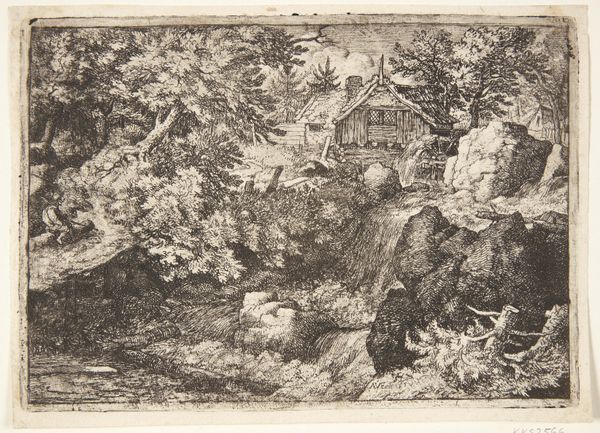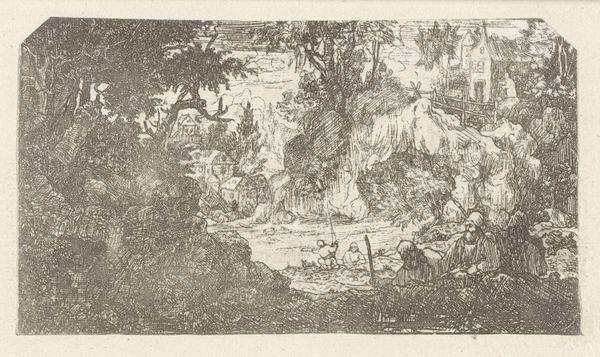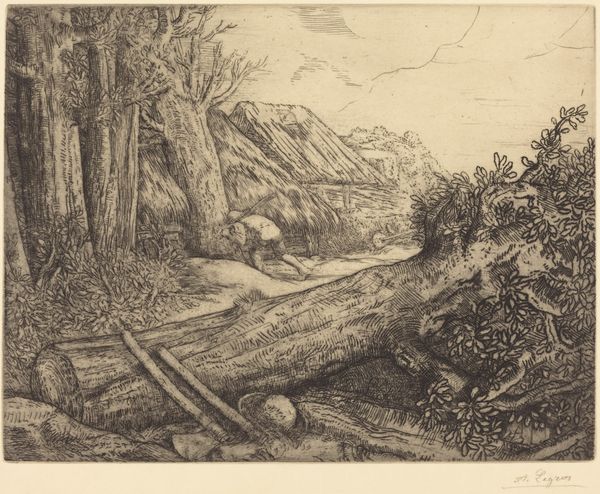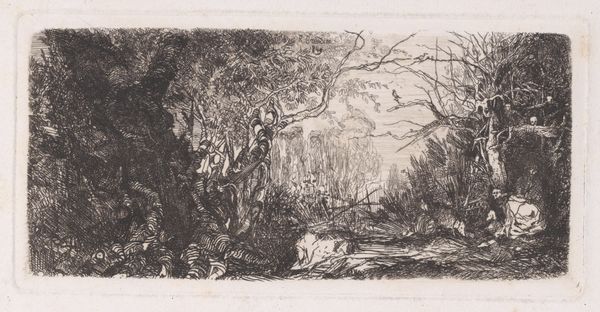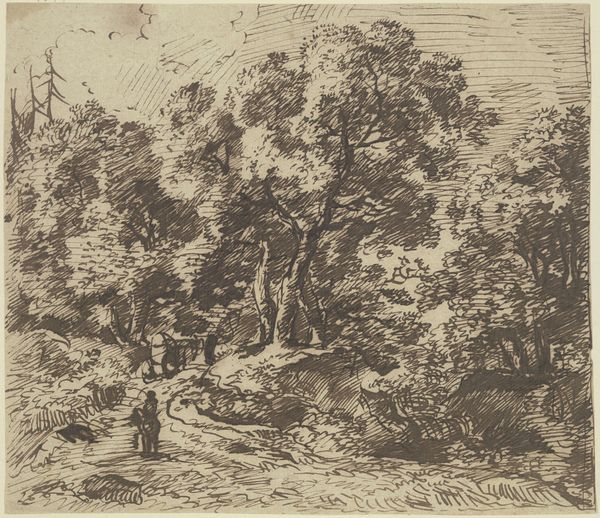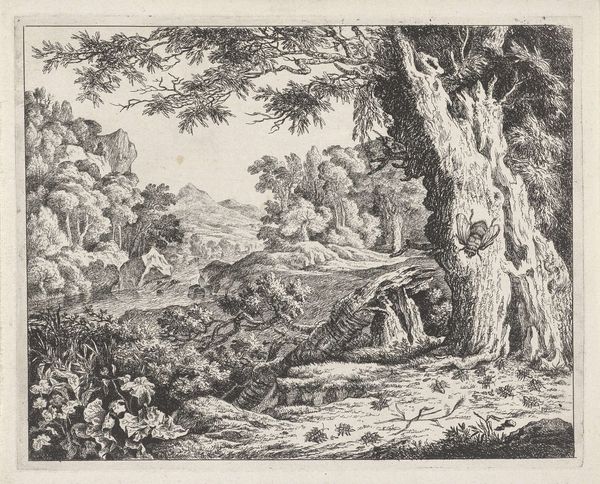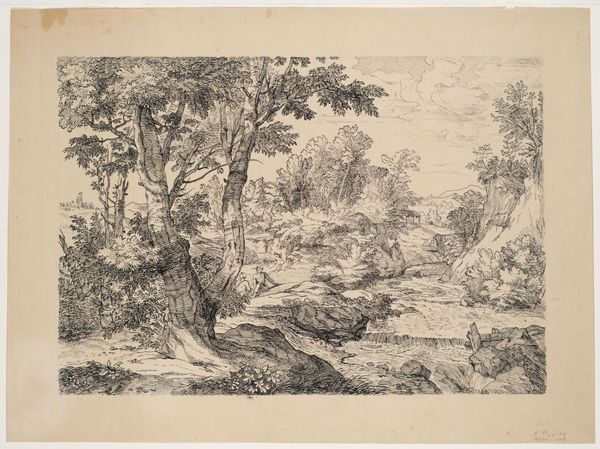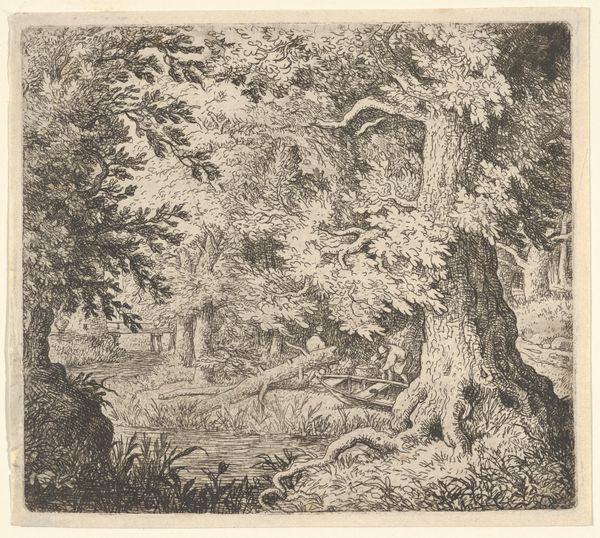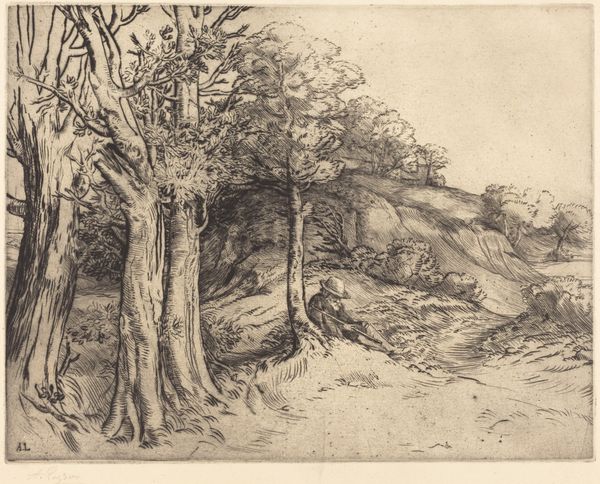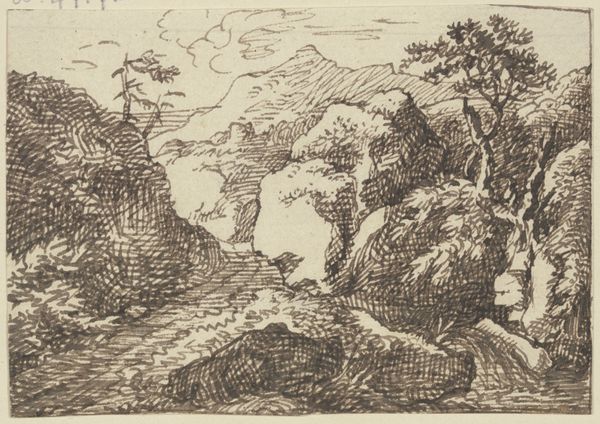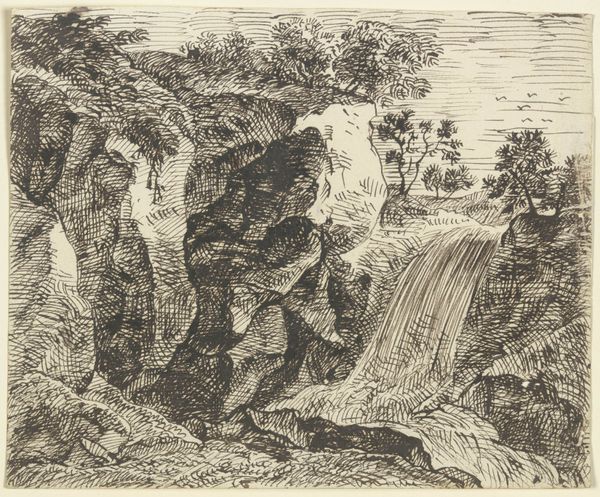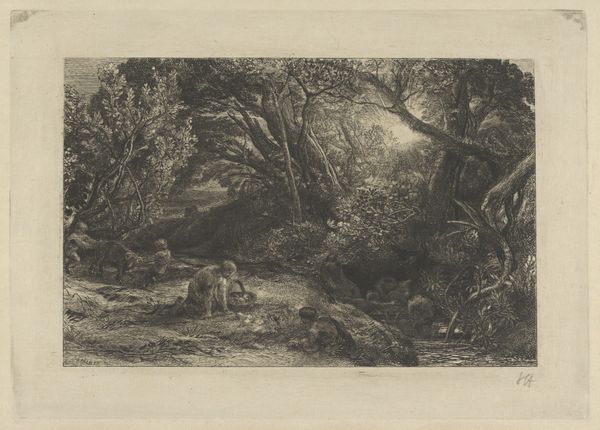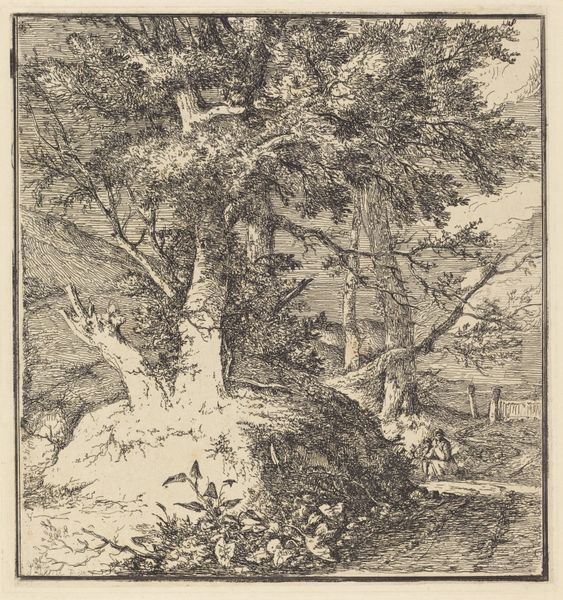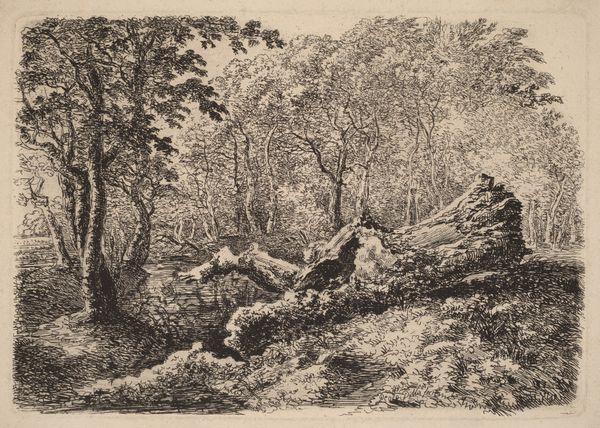
drawing, print, etching
#
drawing
# print
#
etching
#
old engraving style
#
landscape
#
waterfall
#
mannerism
#
water
Dimensions: Sheet: 5 7/8 × 8 5/16 in. (15 × 21.1 cm)
Copyright: Public Domain
Editor: Here we have "The Cascade Near the Watermill," an etching by Allart van Everdingen, likely created sometime between 1621 and 1675. I find the density of the foliage striking, almost claustrophobic, in contrast to the dynamic waterfall. How do you interpret this interplay of nature and industry? Curator: It's more than just nature and industry, isn't it? Think about the historical context. Seventeenth-century Dutch landscapes weren't simply pretty pictures. They were often loaded with social and political commentary. Does the mill, almost overwhelmed by nature, suggest something about the limits of human control, perhaps a critique of early capitalist ventures exploiting natural resources? Consider the water, a life-giving force now harnessed for labor. Editor: That's a powerful reading. I was just seeing a charming landscape, but now I’m wondering about the impact on the environment itself. Was Everdingen aware of ecological issues? Curator: Perhaps not in the way we understand "ecological issues" today, but definitely of the power dynamics at play. Think about who controlled the mills, who benefited from them, and who were potentially displaced by them. These images weren't neutral. They reflect a specific worldview, often one of privilege and power. Who is allowed to stop and admire nature here? Editor: So, viewing the mill not just as a picturesque object, but as a symbol of societal structure is crucial. It makes me reconsider the supposed "charm" of the landscape. Curator: Exactly. By interrogating these seemingly idyllic scenes, we uncover layers of social and economic implications often glossed over in traditional art history. We begin to ask harder, but far more compelling, questions. Editor: This completely changes my perspective. I'll definitely be thinking about the socio-political context of landscapes from now on.
Comments
No comments
Be the first to comment and join the conversation on the ultimate creative platform.
